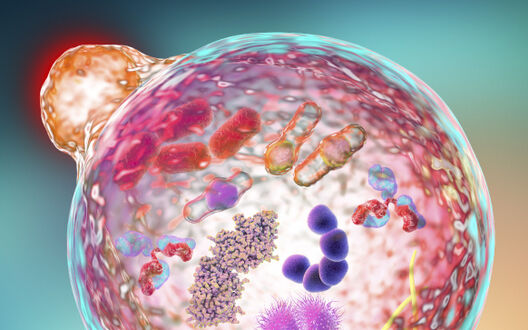Sensory perception of the social environment: regulation of mouse development, metabolism and aging
The social environment can have a major influence on health and aging. In some invertebrates, just the sensory perception of opposite sex pheromones can reduce lifespan, even in the absence of a mate's presence. Dr. Garratt and his team will test the role of olfaction and social interactions in the regulation of mammalian aging.
Previous research shows that exposing male mice to female odors, in the absence of female mice, generates long-term physiological changes indicative of faster aging. By contrast, allowing male mice to mate provides health and age-related benefits that could also be mediated by olfaction.
=
Dr. Garratt and his team will directly explore the role of olfaction in generating these aging responses. They will inhibit the function of specific olfactory neurons in mice to see whether the physiological effects of the social environment persist. To understand how olfaction alters whole body physiology, they will further manipulate testosterone and growth hormone signaling: Both pathways are modulated by odor exposure and could link sensory cues to physiological changes in different tissues.
Finally, Dr. Garratt will test how pheromone exposure and social interactions influence pathological and functional declines that occur during aging, and whether allowing males to mate alleviates the development of aging phenotypes. This will reveal how different aspects of the social environment influence age-related health, and whether pheromones have effects on male aging that are dependent on the presence or absence of mates.



